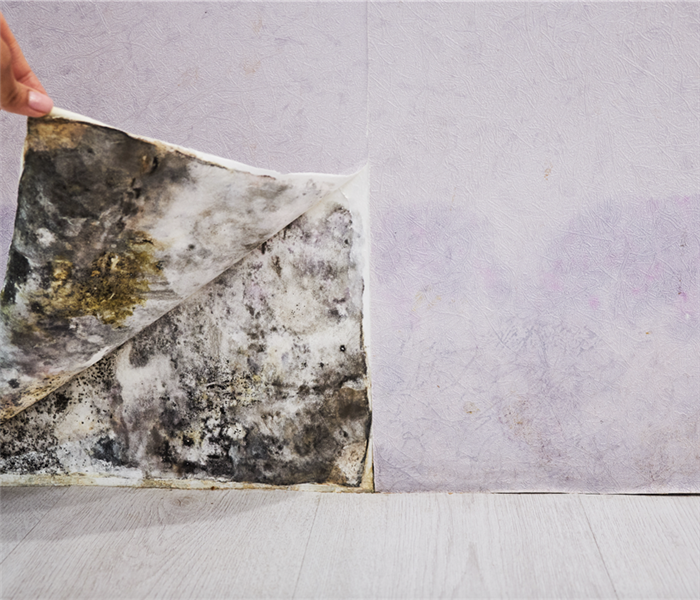Frequently Asked Mold Questions: Answers to Common Mold Concerns
5/14/2023 (Permalink)
 If you suspect mold growth in your home, it's important to have it inspected by a professional to determine the best course of action.
If you suspect mold growth in your home, it's important to have it inspected by a professional to determine the best course of action.
Mold is a common issue that many homeowners face, and it can be a difficult problem to deal with. Here are answers to some frequently asked mold questions that can help you better understand mold and how to address it in your home.
Q: What is mold?
A: Mold is a type of fungus that grows in damp environments. It can grow on a variety of surfaces, including wood, drywall, and carpeting. Mold spores are found in the air all around us and are a natural part of the environment.
Q: How does mold grow?
A: Mold grows when moisture is present. This can be due to a leaky roof or plumbing, high humidity, or flooding. Once mold spores are exposed to moisture, they can begin to grow and spread.
Q: How can I prevent mold growth in my home?
A: The key to preventing mold growth is to control moisture levels. This can be done by fixing any leaks or water damage, using dehumidifiers in areas with high humidity, and ensuring proper ventilation in bathrooms and kitchens.
Q: How can I tell if I have mold in my home?
A: Signs of mold include a musty smell, visible mold growth on surfaces, and the presence of water damage or discoloration on walls or ceilings. If you suspect mold growth in your home, it's important to have it inspected by a professional.
Q: Is all mold dangerous?
A: No, not all mold is dangerous. While some types of mold can produce toxins that can be harmful, most mold is relatively harmless. However, any mold growth in the home should be addressed promptly to prevent it from spreading.
Q: Can I clean up mold myself?
A: It depends on the extent of the mold growth. If the mold is limited to a small area, you may be able to clean it up yourself. However, if the mold covers a larger area or is present in areas with high humidity or moisture, it's best to have it professionally removed.
Q: Will painting over mold solve the problem?
A: No, painting over mold will not solve the problem. The mold will continue to grow underneath the paint, and can eventually cause the paint to peel and flake. It's important to address the mold problem before painting.
Q: Can mold grow in the HVAC system?
A: Yes, mold can grow in the HVAC system if moisture is present. This can lead to mold spores being circulated throughout the home, which can cause health problems for occupants. Regular maintenance and cleaning of the HVAC system can help prevent mold growth.
Understanding Mold and How to Address It
In conclusion, mold is a common issue that many homeowners face, but it can be addressed with proper understanding and preventative measures. By controlling moisture levels, regularly inspecting for mold growth, and addressing any issues promptly, homeowners can prevent mold growth and ensure a healthy living environment. If you suspect mold growth in your home, it's important to have it inspected by a professional to determine the best course of action.





 24/7 Emergency Service
24/7 Emergency Service